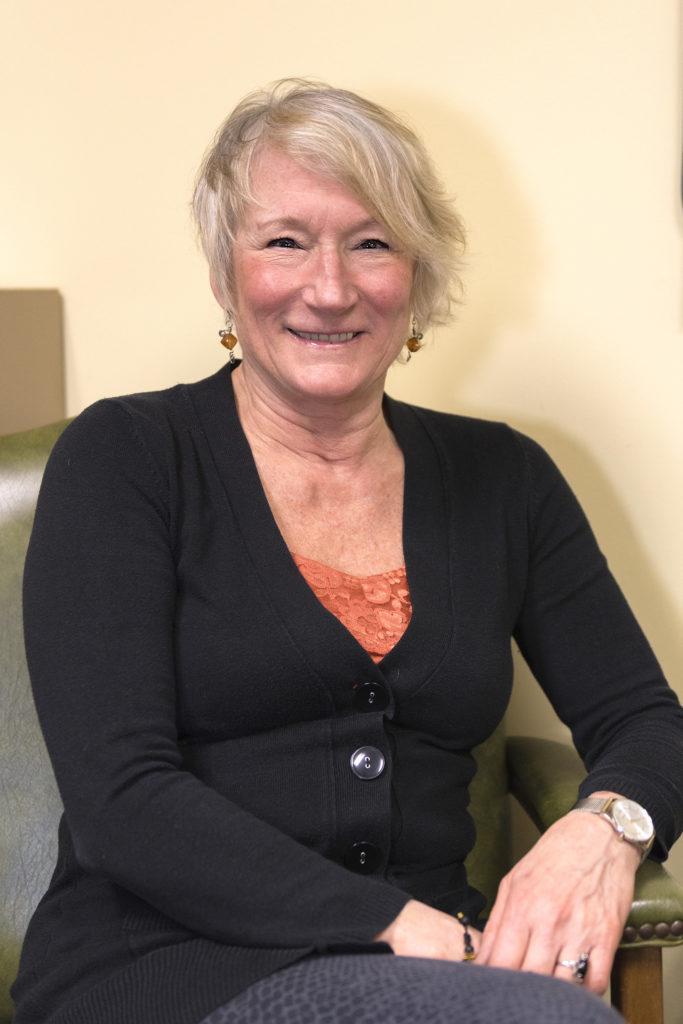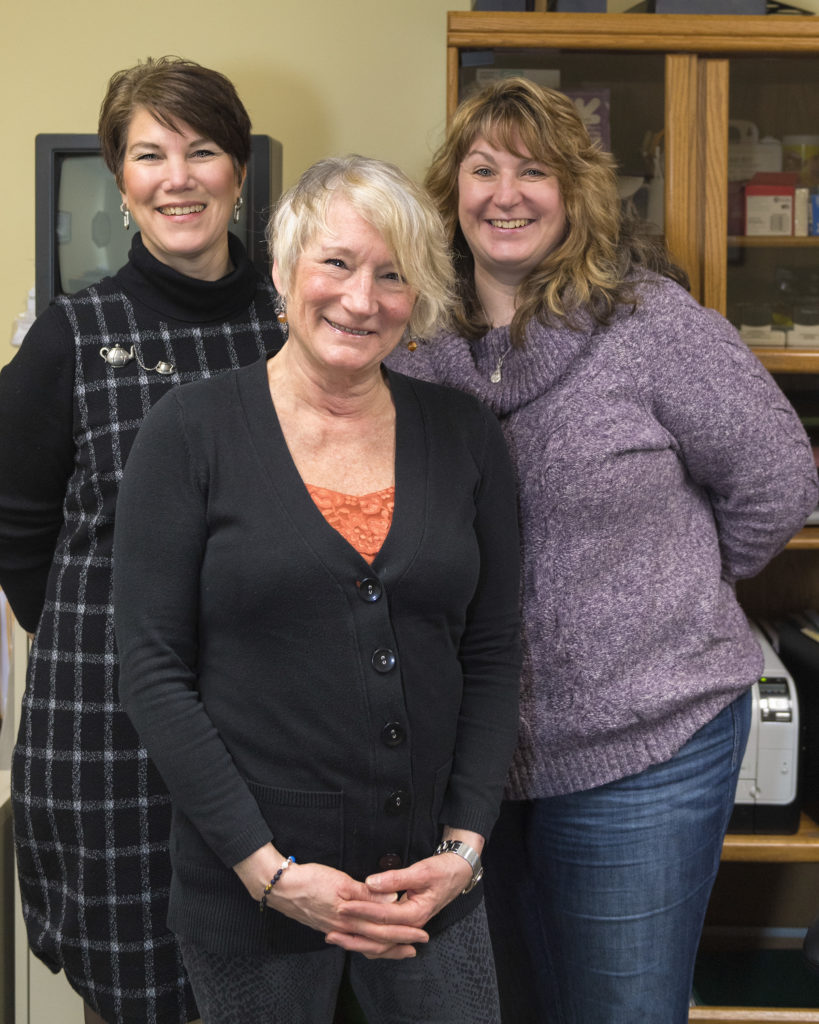After Helping Several Thousand People, Credit Counselor Gay Pustaver Moves On
- Share
- Tweet
- Pin
- Share

Imagine you have gotten into such a financial bind that you have come up with a scheme to kill yourself so your family can collect life insurance.
While it sounds like a plot for a bad TV movie, Gay Pustaver explained that is exactly how the Financial Information and Service Center (FISC) she has worked for the last 23 years got started.
“It was started in 1985 by two guys in Menasha who sold life insurance,” she said. “One of them had gotten in debt. He was going to fake his death so his wife would get his life insurance money. Instead of doing that, he told his friend and co-worker, who talked him out of it and helped him set up a spending plan.”
The spending plan worked so well the two men decided to make a business out of what they had learned, and FISC was born. The founders eventually left the business, and it is now a program of Goodwill Industries of North Central Wisconsin, with offices in Menasha, Green Bay, Oshkosh and Sturgeon Bay.
This month Pustaver steps down, after helping 3,119 clients and giving 11,173 presentations about financial responsibility. She turns the reins over to Leslie Boden, who has been in training for the position since October.
“I’m very happy to have found someone as wonderful as Leslie to pass it on to,” Pustaver said.
“It’s the thing I’ve done the longest besides being a mom,” she said about the financial counseling gig. “We do other things here, too: write grants, raise money, speaking engagements. The job has morphed a lot.”
Certified credit counseling can cover a wide range of topics, from debt relief to buying a home to learning how to manage money after a spouse dies, all of which require certifications for the counselor.
“I was one of the first 50 people in the country to get student loan debt counseling certification in 2015 because there was such a need for that,” Pustaver said. “I used to be a financial aid counselor in a different life, so it wasn’t new to me. So that was added in. We can turn on a dime and respond to the next thing that comes up. The foreclosure crisis – that wasn’t a crisis to me. I saw some of the things lenders were doing. When that happened, we had to learn all about foreclosure and loan modifications. We react and respond to whatever needs come up.”
Pustaver is proud that word of mouth is how most people learn about the service she provides.

“That means people trust us, and they know that when we say everything is confidential, we mean it,” she said. “I tell all my new people, I will not say hi to you in the store unless you say hi to me first. We’re also nonjudgmental. A lot of people have a hard time wrapping their heads around that. We don’t blame them; we don’t shame them. We give them resources and information so they can make their own decisions. We’re not going to judge you or yell at you – we’ll just give you options. That’s why it works.”
Pustaver said there are five homebuyer programs that require potential buyers to go through money-management counseling.
“So they know what life is like now and what’s going to be different when you own a home,” she said. “You’ve got to have money always waiting to fix the things the landlord isn’t going to fix anymore. The Great American Dream can be the horrible American nightmare if you’re not prepared for it.”
She has also seen her share of mostly elderly people falling for fly-by-night debt settlement companies and other scams.
“Thirty percent of my clients this year were 65 years and older. I have clients in their 90s,” she said. “They are very proud and very nervous to talk about money issues. When they trust us with that, I think it takes a lot of courage. It’s like you have to teach a generation of people to know how not to trust. I have been in consumer advocacy for years. I don’t pick up the phone when it says certain things. I just know. But a lot of people of a certain age don’t know that. That’s impolite not to take a phone call. The scammers get you all worked up. Once [my clients] figure out what has happened, they feel so ashamed. It’s sad in so many ways, but it can be a real learning experience. If something bad is going to happen, you might as well flip it around. No point in dragging it around and around. You have to be understanding of yourself.”
Although Pustaver will be stepping away from FISC at the end of this month, she will continue to work as a custody mediator for divorced parents in Door County – work she has been doing since 1987. And she will continue to train others through the University of Wisconsin-Oshkosh’s Center for Community Development, Engagement and Training, where she has worked with caregivers, child care workers and others since 1996.
“It’s hard work but also pretty rewarding. And once again, it’s up to them to work it out,” she said. “I’ve been doing all this kind of work a long time. If you don’t learn early on what professional boundaries are, you won’t last. It’s what keeps you able to keep doing the job. I can’t take it home. Are there people in other situations that are really tough and might stick to my skin? Of course, but I train people how not to take on those problems. You’re not emotionally involved with them. You care. Of course you care, but sympathy and empathy are two different things. We always say, the choices are all yours to make. It’s really all up to the person. The beauty of a trained third-party professional is that I’m just here to do that job.”


